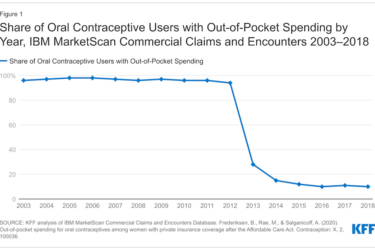
Perhaps the federal Centers for Medicare & Medicaid Services (CMS) learned a lesson over the past few weeks when it tried to make changes in its Part D prescription drug program. The lesson: Don’t mess with Part D in an election year.
On Monday, CMS withdrew its proposal to revise the Part D program, a proposal that drew widespread criticism from congressional Republicans and Democrats and from groups of patients, among others. Those in opposition said the proposal would undermine Part D, which members of Congress called a successful and popular program. More than 36 million elderly and disabled Americans get prescription drug coverage through Part D.
“Late last week, more than 370 organizations representing insurers, drug makers, pharmacies, health providers and patients urged CMS to withdraw changes it had proposed for Medicare Part D,” wrote David Morgan of Reuters. “The Republican Party had already begun to look for ways to leverage popular anger over the changes into campaign attacks on Democratic incumbents who could be vulnerable in November’s election showdown for control of Congress.”
The proposal worried Democrats too, reported Mary Agnes Carey for Kaiser Health News. “Some congressional Democrats, facing a tough midterm election battle, were nervous that a battle on changes to the Medicare drug program could make them even more vulnerable,” she wrote.
The proposal would have limited the number of prescription drug plans insurers could offer to consumers, prohibited plans from excluding pharmacies from their preferred networks, and eliminated protections for drugs in six classes, including medications for depression and schizophrenia.
Not everyone was pleased that CMS withdrew the proposal. Writing for Inside Health Policy, Michelle M. Stein and Donna Haseley said, “The National Community Pharmacists Association (NCPA), which had fought hard for the rule’s pharmacy provisions, said it was ‘deeply disappointed’ and said the agency legally must move forward.”
NCPA and independent pharmacists opposed the proposed limits on pharmacy networks. Instead, they support provisions that force insurers to accept any provider willing to participate as a network pharmacy.
Keeping pharmacy networks small helps contain costs, as health plans have found. Conversely, rules that allow any willing provider to participate in networks increase costs.
In a comment on the Part D “any willing provider” issue, the FTC said, “…health plans’ ability to construct networks that include some, but not all, providers can be an important tool to enhance competition and lower costs in markets for health care goods and services.”
The Medicare Payment Advisory Commission also disagreed with the CMS proposal to open up preferred pharmacy networks, according to an article by John Wilkerson in Inside Health Policy.
When it issued the proposal in January, CMS estimated that all the changes it proposed for its prescription drug program would reduce overuse of some drugs and save $720 million by 2019.
One of the most contentious parts of the proposal involved eliminating protections for drugs for depression and schizophrenia and other classes. Opponents said this eliminating these protections could result in increased hospital and physician services if patients could no longer get or afford the medications in six classes of drugs: anticonvulsants, antidepressants, antineoplastics, antipsychotics, antiretrovirals and immunosuppressants. Antidepressants and immunosuppresants would have lost protected status in 2015 and antipsychotics would have lost it in 2016, CMS said. The other three classes (anticonvulsants, antineoplastics and antiretrovirals) would continue to be protected in 2015 pending CMS review, the proposal said.
In a letter to Congress, CMS Administrator Marilyn Tavenner said, “Given the complexities of these issues and stakeholder input, we do not plan to finalize these proposals at this time.”
Instead, the agency will “engage in further stakeholder input before advancing some or all of these changes in these areas in future years.”
CMS will proceed with other parts of the Part D proposal, including steps to reduce fraud, Tavenner added.









